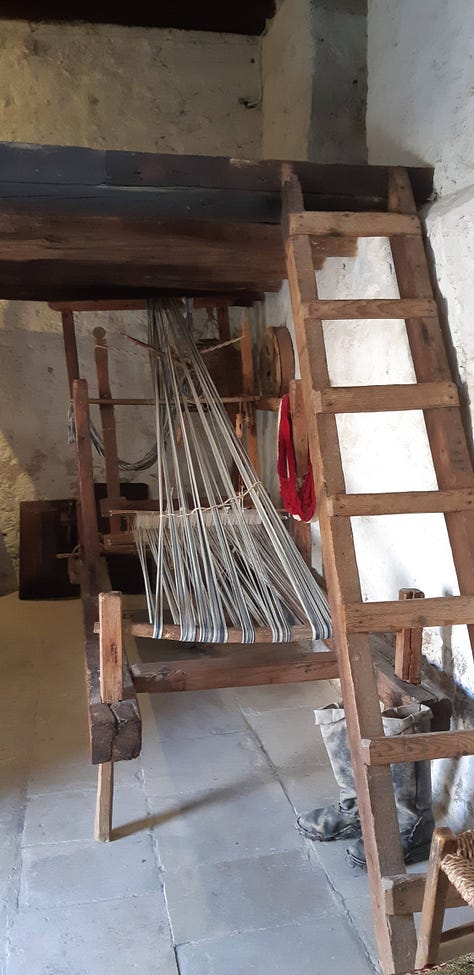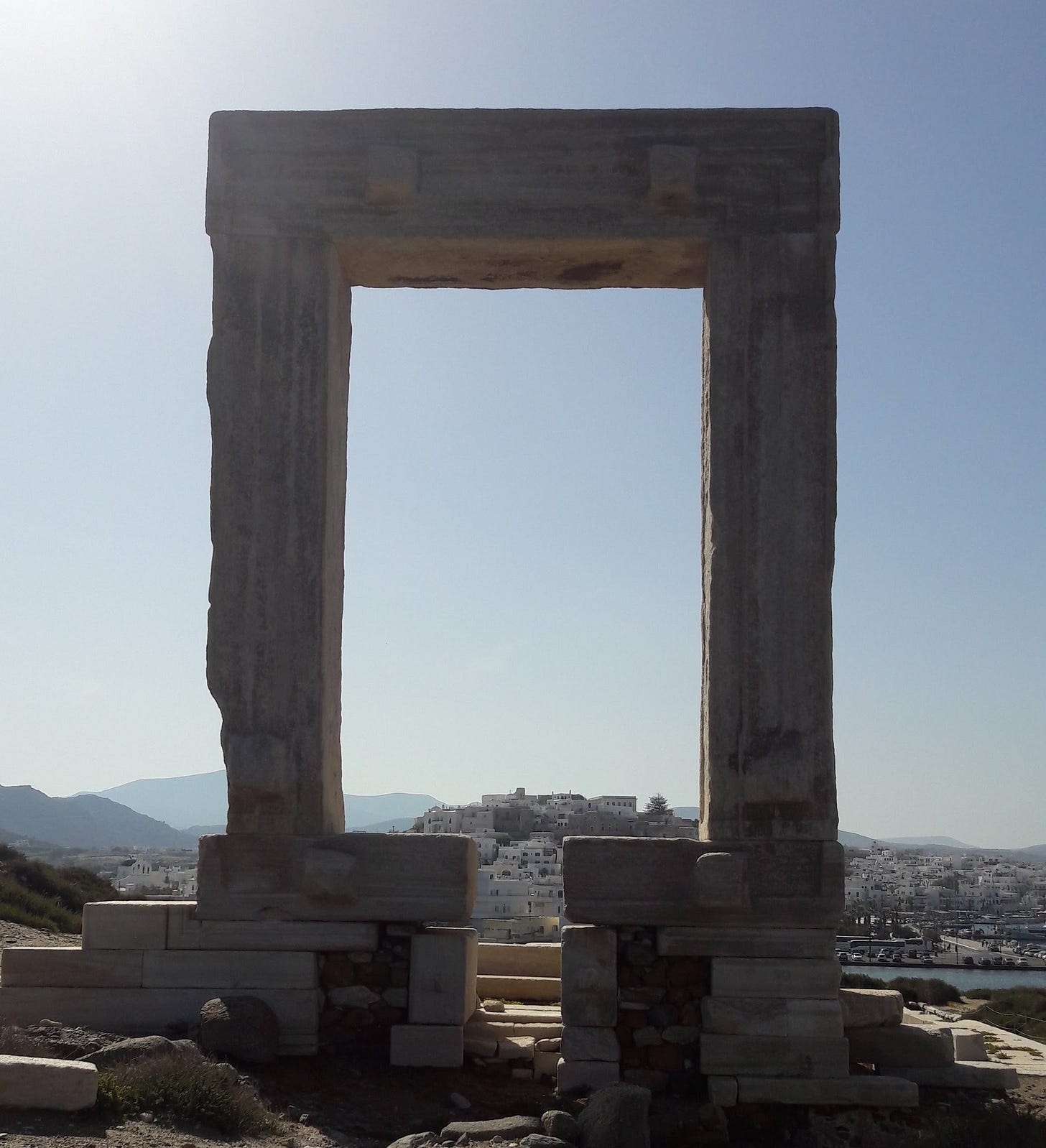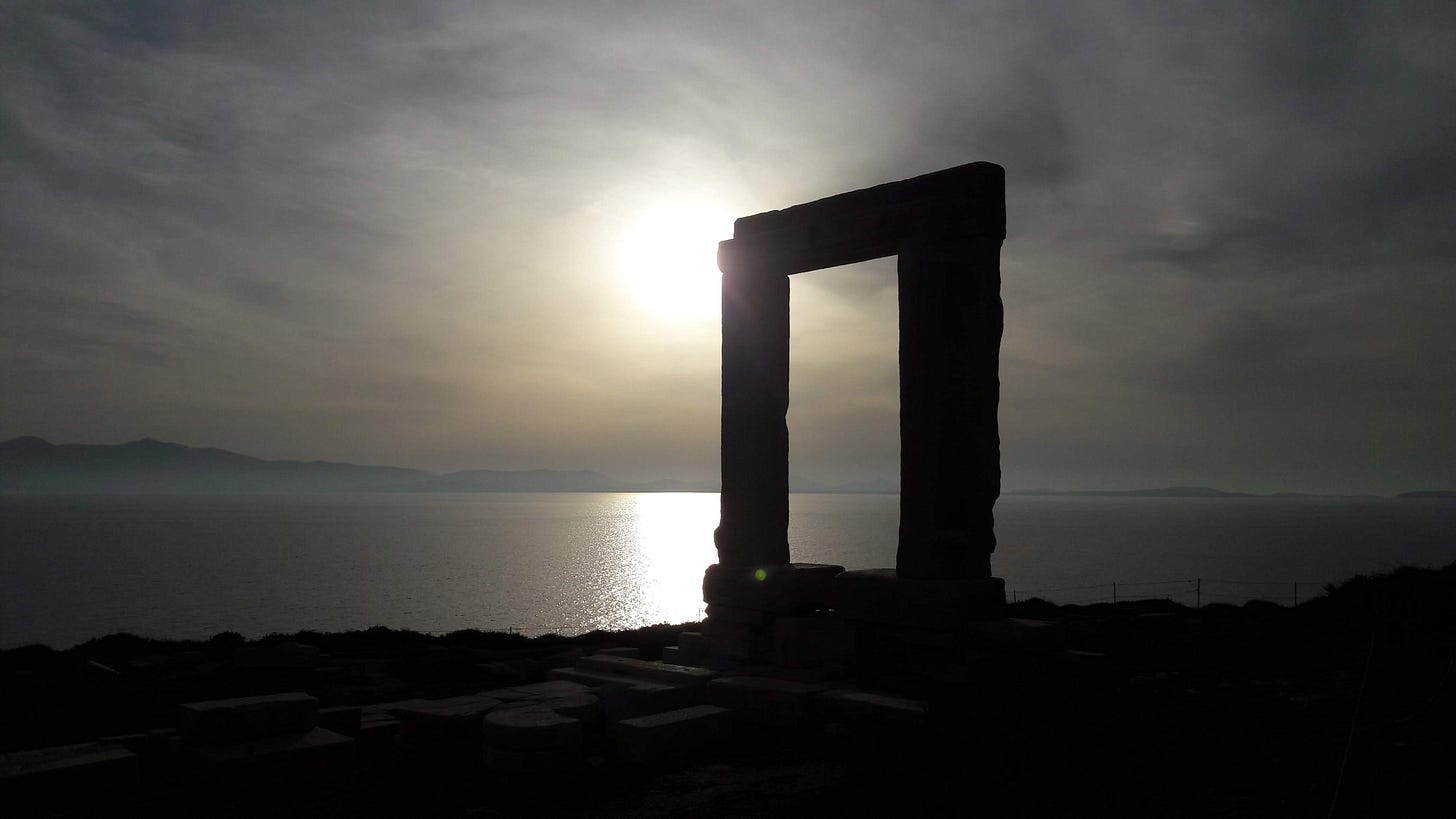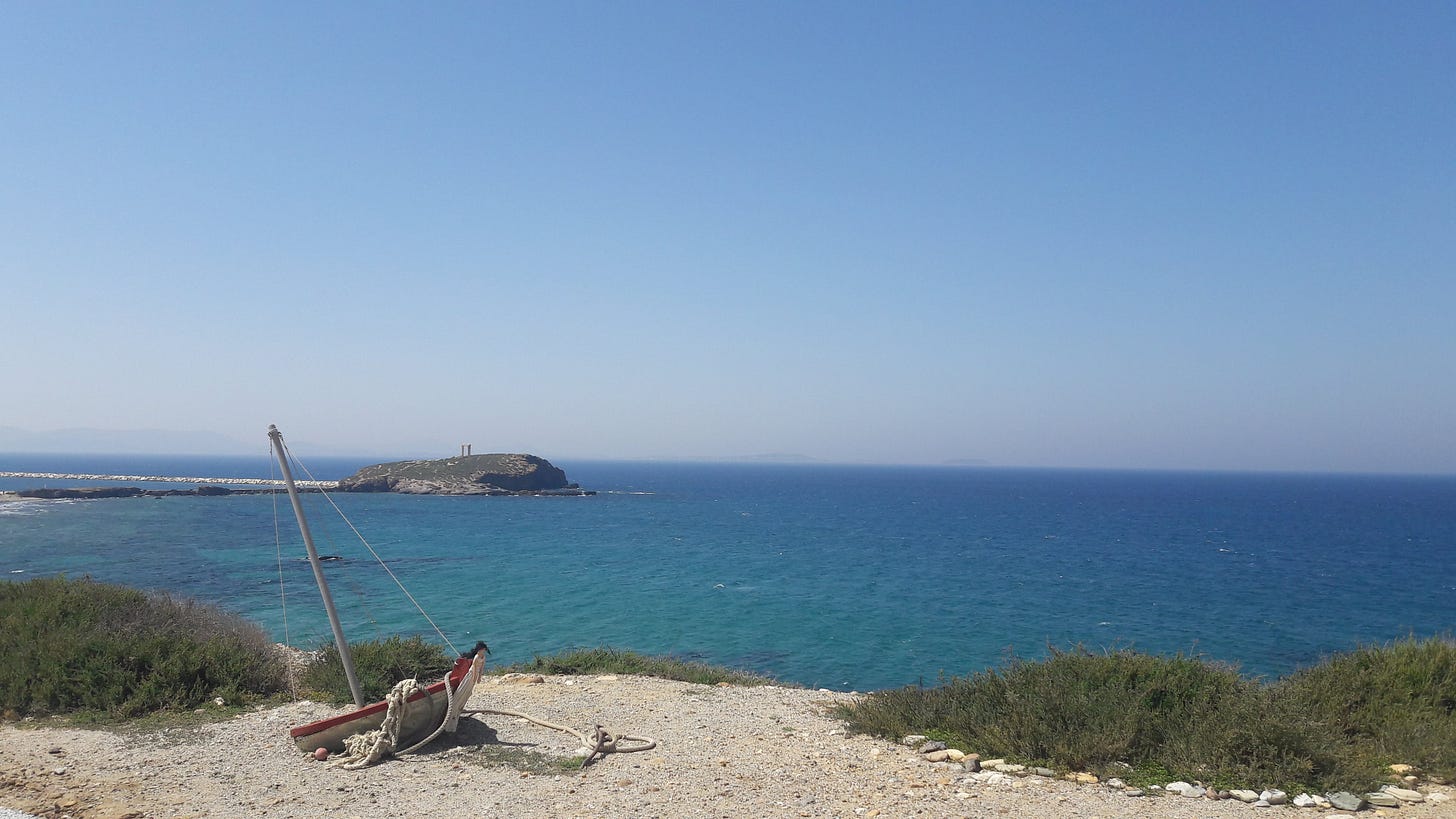Early in 2023, I started working my way through the exercises in Julia Cameron’s The Artist’s Way, hoping to dislodge a massive block that’s been plaguing my creativity for about a decade. Today, I realized I’d let the program lapse—I stopped doing the daily writing exercises sometime early in the summer. One of many false starts in my writing career, it seems.
The Portara of Naxos looks to the untrained eye much like ancient sites you’ll find all over Greece. It’s a massive marble threshold, like an entrance or gateway to some great unseen building. But there’s something a little different about the Portara. The ruler who wanted the temple built on Naxos lost power before his vision could be realized. Unlike the ruins in Athens or Delphi or Ancient Olympia, which stand as remnants of the glorious structures of antiquity, the massive stone doorway overlooking the port of Naxos is the threshold to a temple that was never completed.
When Samuel Taylor Coleridge wrote Kubla Khan, so the story goes, he had a whole different epic in mind. The poem’s subtitle—if I may call it that—is “Or, a vision in a dream. A Fragment.” It starts off with good intentions: Kubla Khan decreed the construction of a pleasure dome. A story not unlike that of the temple on Naxos, no? Except the poem itself is the unfinished business. If I’m to believe my Grade 10 English teacher, the poem is a lament for the great idea Coleridge had while taking opium but couldn’t recreate once he’d sobered up.
Like Coleridge’s “dome in air,” the temple on Naxos—maybe intended to honour Apollo, although some say Dionysus and others say Athena—never came to be. The Portara, sometimes called the Great Door, exists as a doorway to a good intention.
We don’t have many nice things to say about good intentions. They’re the currency of people who lack accountability, like politicians or the writers on And Just Like That. In fairness, though, I’ve spent ample time talking about being a writer and relatively little time writing. And who of us hasn’t tried to pass off I didn’t intend to make you feel that way as an actual apology. And as for the best laid plans, that’s an expression that doesn’t even bother to finish itself.
I remember the almond blossoms in Cyprus, that year I got sick. They were the whitest shade of pale pink. I thought they were cherry blossoms, until the nurse who drove me from my apartment to the hospital one day told me what they were. “It’s too bad you can’t stay until they ripen,” she said. “When you eat them from the trees, they’re soft and sweet like fruit.” I never saw the blossoms come to fruition, but I’ll never forget the blushing whiteness of those flowers. And I’ll never eat cherries without imagining them to be fresh almond berries.
Sometimes, time just isn’t on our side. Maybe it’s because I lost a parent when I was still a child, but I’m keenly aware of the finite nature of my time. I don’t mind giving up on a book mid-read. I’ve sometimes bailed on jobs even as friends or family encouraged me to hold fast. I’ve also exercised my share of stick-to-it-iveness at times, but I don’t want to get duped by that sunk-cost fallacy.
The incomplete can be beautiful, even if it doesn’t achieve its intended completion. Fragments of projects can be repurposed to new ends. An unfinished rug left on a rustic weaving loom becomes an artifact, inviting us to consider its invisible maker and her interrupted intentions. The Great Door to an unfinished temple to an unidentified deity can become the threshold to whomever or whatever is the object of your aspirations.



For me, the Portara is a metaphor for desire. In her book Bittersweet, Susan Cain suggests that the common ground for all the great and good literary characters, from Odysseus to Pippi Longstocking, is longing.
“These tales resonate because we’re all subject to illness and aging, breakups and bereavement, plagues and wars. And the message of all these stories, the secret that our poets and philosophers have been trying to tell us for centuries, is that our longing is the great gateway to belonging.” —Susan Cain, Bittersweet
In a nutshell, life is short. Each of us wants to believe we’re making meaning with our life, and we all mean well. Sometimes our best laid plans go awry through no fault of our own. Sometimes the thing we try turns out to be better left undone. The starts and stops are all part of a life of meaning making, they’re our attempts at connecting, our bids for belonging.
Can it be that not every intention must—or even should—be brought to completion? Maybe there’s value in the false start. Coleridge no doubt felt his final draft of “Kubla Khan” was a cop-out, but how many artists have read it and felt a sense of recognition? Relatability is a much rarer quality in orientalist fantasias about stately pleasure domes than you might think.
What are the temple fragments in my life? I started doing the exercises in The Artist’s Way sometime last winter and let them lapse in early summer. That’s about the time I started up this Substack. Writing these posts each week has been creatively satisfying, and your support of my efforts has been more gratifying that you could know. Maybe my incomplete execution of The Artist’s Way wasn’t so much a false start as it was a threshold, bringing me into something I’ve only just begun to build.








These surviving temples serve as invitations to me. I can not tolerate not having an adventure on my plate to plan, or a recent one to absorb and understand. Do you know David Whyte's work? The poem Santiago reflects this. If you don't know of him, we'll see you in awhile, when you come up for air!
Reading this has given me much to think about.